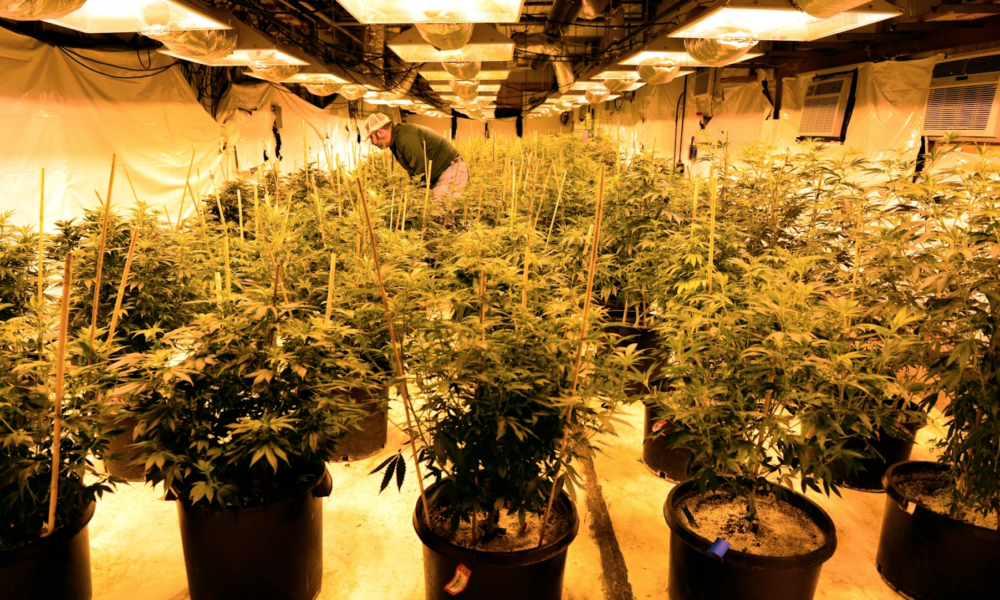International
Legal marijuana, but Uruguayans still prefer black market
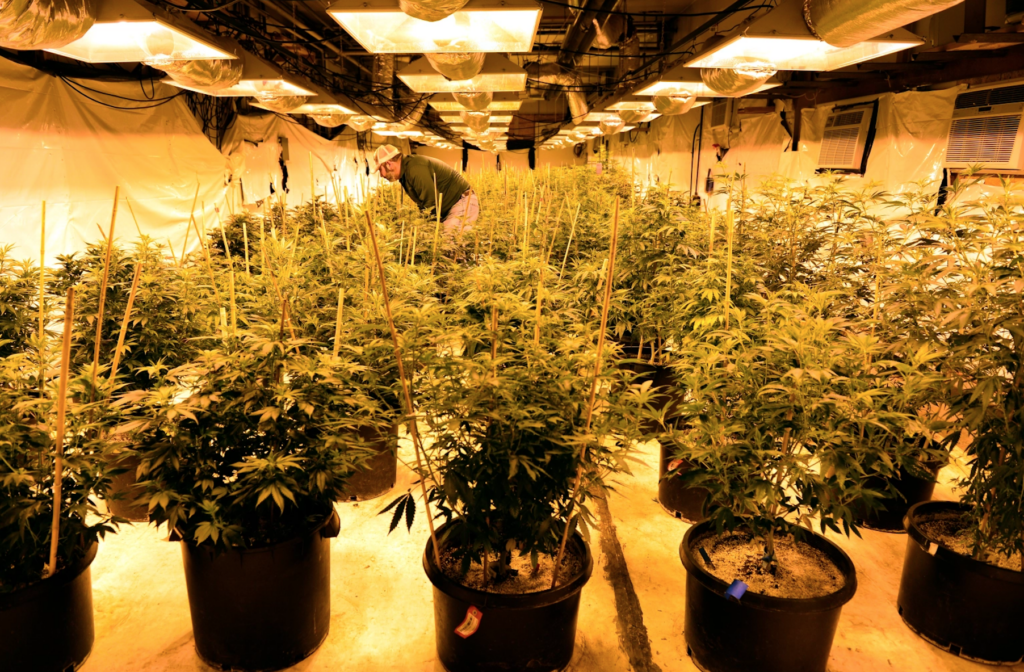
AFP | Andrea Figueras Ariso
Uruguay was a pioneer in the legalization of recreational cannabis use, a move that helped to push many drug traffickers out of the domestic market.
But a bland and insufficient state supply has meant most consumers still prefer the diversity of the black market.
In 2013, Uruguay became the first country in the world to legalize recreational marijuana use — which came into effect four years later — even permitting its sale in pharmacies.
There are three legal ways for registered users to get hold of marijuana: purchasing it at pharmacies, through home growing for personal use, and by belonging to an official cannabis-producing club.
The most sought after legal method is membership of one of the 249 consumer clubs, which offer a greater variety to their 7,166 members than pharmacies do.
But many clubs have long waiting lists to join as they are limited by law to between 15 and 45 members.
Pulla, the treasurer and technical manager of a cannabis club in Montevideo — who uses a nickname to avoid falling foul of the ban on promoting cannabis use — explained that the waiting list “is an indicator that demand is not satisfied.”
“Many more people want to access the legal market who still cannot,” he said.
There are just over 14,000 registered home growers and another 49,600 people are registered to purchase marijuana at one of the country’s 28 approved pharmacies at around $10 for five grams — below the black market rate.
According to a study by the local IRCCA institute that regulates cannabis, only 27 percent of Uruguayan consumers buy their drugs through approved channels, a figure that reaches 39 percent when taking into account sharing with friends.
‘Main objectives met’
Joaquin, a cannabis user who purchases on the black market and goes by an alias, explained that one problem with the legal supply is the need to make an appointment at the pharmacy.
The black market is quicker and simpler. You “have a contact, talk to him and in the day, or the next day, coordinate and buy,” he said.
Buying on the black market does not necessarily mean getting involved with dangerous drug traffickers, though.
Organized drug traffickers selling “Paraguayans”, a cheaper quality marijuana imported from nearby Paraguay, represent just 30 percent of the illegal market, says Marcos Baudean, a professor at ORT University and researcher at the Monitor Cannabis project.
“There are many more domestic growers who are simply not registered” but have already overtaken trafficking networks in the sale of cannabis.
In that respect, “the main objective has been met: people can consume cannabis without needing to be linked with criminal organizations,” said Daniel Radio, secretary general of the National Drug Board.
The perception of the illegal market has also changed.
Agus, 28 and using an alias, said she originally registered to buy cannabis from pharmacies but now acquires it on the black market while growing her own plants despite not being registered.
“I don’t see it as the black market,” she said. “It has good prices for what is sold and you don’t feel like you’re making use of drug trafficking.”
There is “a friend or an acquaintance who passes you a contact from someone who has flowers and sells them.”
Some people simply prefer to avoid registering, even though the information is used only for the study of consumption.
Cannabis tourism ‘potential’
“The regulation of cannabis has been more effective than repression in terms of the blow to drug trafficking,” explained Mercedes Ponce de Leon, director of the Cannabis Business Hub, a platform charged with developing the drug’s ecosystem in the country.
However, Radio acknowledges that the black market preference of some users demonstrates limits to the current system.
Radio said users tend to be after a higher percentage of THC — tetrahydrocannabinol, the main psychoactive substance in the drug, which is limited to 10 percent in the pharmacy product — or more variety such as variants that produce different psychoactive effects.
“That conspires against the effectiveness of the system,” said Radio.
The government now plans to increase the THC percentage and offer greater variety in pharmacies by the end of the year to attract more recreational consumers to the formal market.
Legalization, introduced by leftist guerrilla-turned president Jose Mujica, in power from 2010-15, created an industry of medicinal cannabis exports that have brought more than $20 million to Uruguay’s economy since 2019.
Uruguay sells mainly to the United States, Switzerland, Germany, Portugal, Israel, Argentina and Brazil.
Although current center-right President Luis Lacalle Pou insists the legalization move was a mistake, the left-wing opposition wants Uruguay to go even further.
Currently reserved for residents, they want the market to be opened up to tourists.
“It’s a simple formula: if tourism increases, spending increases, employment increases and investments increase. Models like that in California demonstrate the potential” for cannabis tourism, said Eduardo Antonini, an opposition politician and vice-president of the tourism commission in congress.
Other than Uruguay, 15 American states have legalized recreational marijuana use, as well as Canada.
International
Japan reopens Kashiwazaki-Kariwa Plant despite public concerns
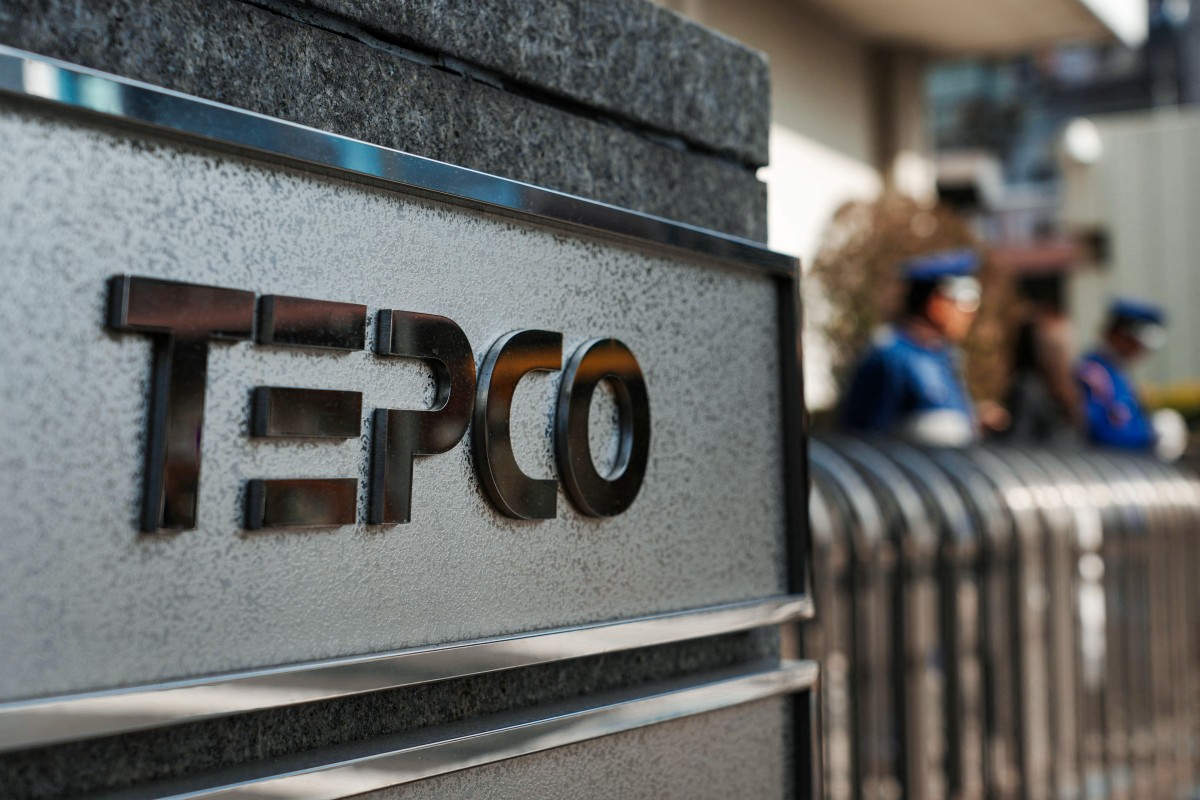
La centrale nucléaire japonaise de Kashiwazaki-Kariwa, la plus grande au monde, a repris ses activités mercredi pour la première fois depuis la catastrophe de Fukushima en 2011, malgré les inquiétudes persistantes d’une partie de la population.
La remise en service a eu lieu à 19h02 heure locale (10h02 GMT), a indiqué à l’AFP Tatsuya Matoba, porte-parole de la compagnie Tokyo Electric Power (Tepco).
Le gouverneur de la préfecture de Niigata, où se situe la centrale, avait donné son feu vert à la reprise le mois dernier, en dépit d’une opinion publique divisée. Selon une enquête menée en septembre par la préfecture elle-même, 60 % des habitants se déclaraient opposés au redémarrage, contre 37 % favorables.
Mardi, plusieurs dizaines de manifestants ont bravé le froid et la neige pour protester près de l’entrée du site, sur les rives de la mer du Japon.
« L’électricité de Tokyo est produite à Kashiwazaki. Pourquoi seuls les habitants d’ici devraient-ils être exposés au danger ? Cela n’a aucun sens », a déclaré à l’AFP Yumiko Abe, une riveraine de 73 ans.
La centrale de Kashiwazaki-Kariwa avait été mise à l’arrêt lorsque le Japon a fermé l’ensemble de ses réacteurs nucléaires à la suite du triple désastre de mars 2011 — un séisme, un tsunami et un accident nucléaire — survenu à Fukushima.
International
Markets rise as Trump halts Europe tariffs and floats Greenland agreement framework
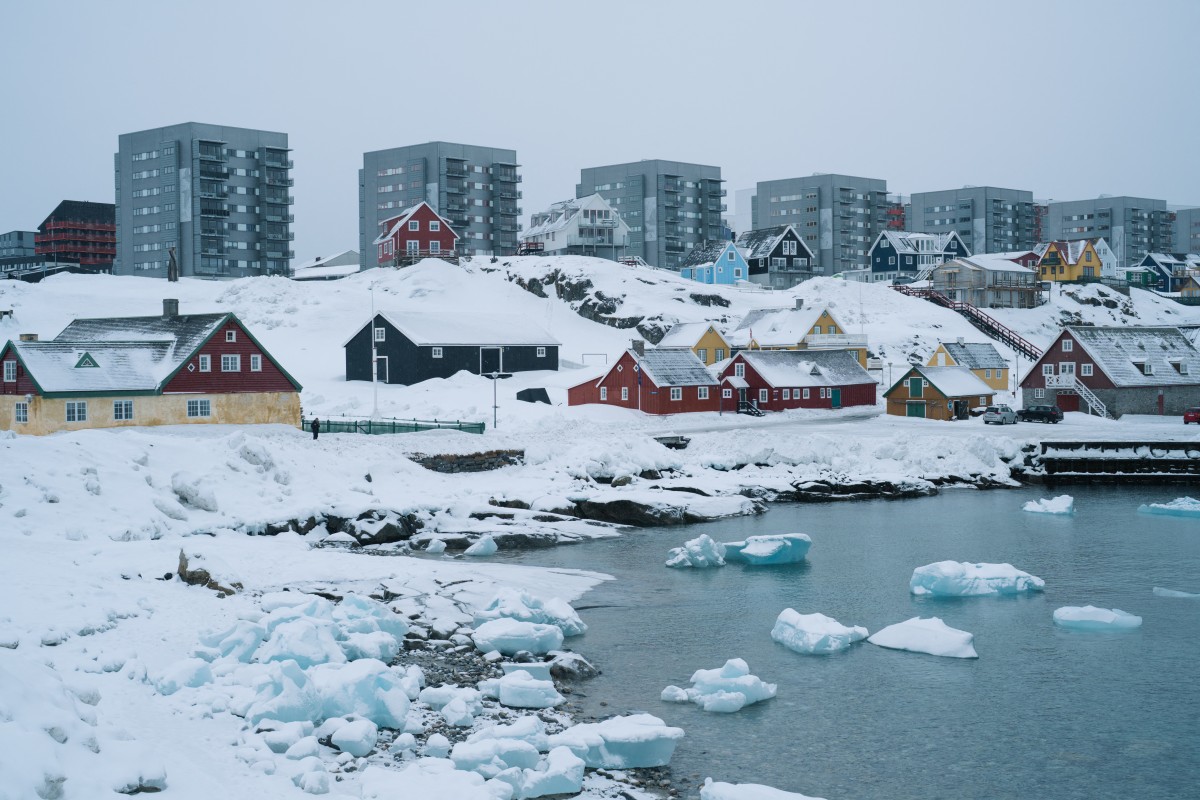
U.S. President Donald Trump on Wednesday lifted his threat to impose new tariffs on several European countries and said he had outlined the framework of a future agreement on Greenland during a meeting in Davos with NATO Secretary General Mark Rutte.
“Based on this understanding, I will not impose the tariffs that were scheduled to take effect on February 1,” Trump wrote on his social media platform Truth Social, without providing details about the proposed “framework.”
The announcement boosted financial markets. Wall Street, which had been trading slightly higher, extended its gains following Trump’s message, while the U.S. dollar strengthened against the euro.
Trump has repeatedly insisted that Greenland, rich in mineral resources, is ‘vital’ to the security of the United States and NATO, particularly as Arctic ice melts and global powers compete for strategic advantage in the region amid rising tensions with China and Russia.
Last week, the U.S. president threatened to impose tariffs of up to 25% on eight European countries for supporting Denmark and sending a military exploratory mission to Greenland. All of the targeted countries are NATO members, including the United Kingdom, Germany, and France, Europe’s largest economies.
Trump said on Wednesday that additional discussions are underway regarding the “Golden Dome” missile defense system, specifically in connection with Greenland.
He assigned Vice President JD Vance, Secretary of State Marco Rubio, and special envoy Steve Witkoff to lead the negotiations.
Hours before his post, Trump ruled out the use of force to seize Greenland for the first time, but demanded “immediate negotiations” for its acquisition, reiterating his view that only the United States can guarantee the security of the Arctic island.
International
Venezuela’s interim president predicts 37% increase in revenues for 2026
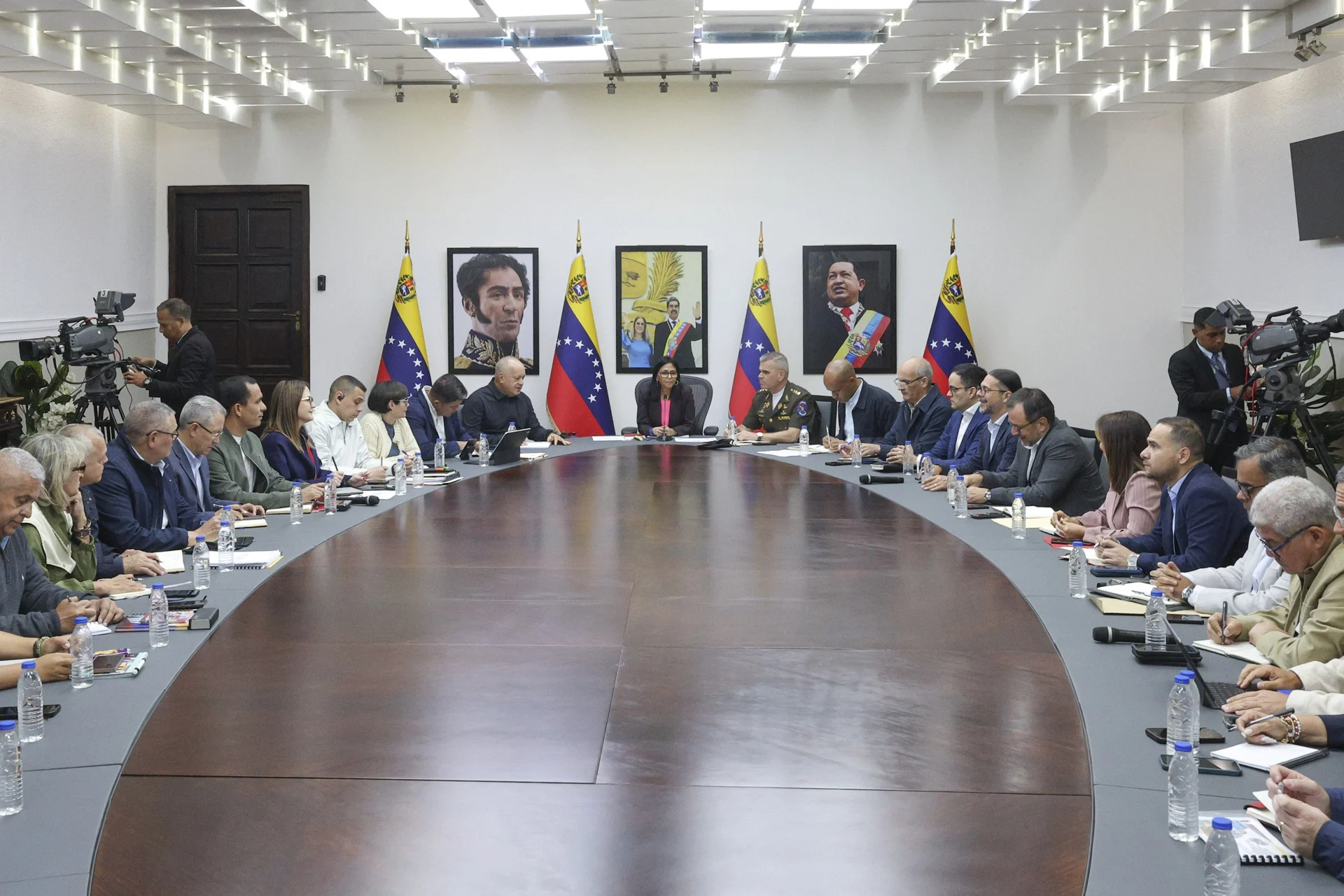
Venezuela’s interim president, Delcy Rodríguez, said Wednesday that the country’s revenues are expected to increase by about 37% in 2026, in a statement made during a session of the Federal Government Council at the Miraflores Presidential Palace in Caracas.
Rodríguez said the projected rise in foreign currency income comes as agreements on Venezuelan oil sales with the United States are being implemented, including deals in which Washington will trade Venezuelan crude and manage the proceeds before transferring funds to Caracas.
“This year, revenues expressed in foreign currency will increase by 37%,” Rodríguez declared, according to EFE. She noted that the increase will also benefit regional governments and local authorities. “You will have more resources for your management, which I know you need,” she added.
Rodríguez said the distribution formula for revenues will remain the same as in 2025: 53% for communes, 29% for state governments, 15% for municipalities, and 3% for institutional strengthening. She also said the government would intervene to “correct imbalances” in how funds are allocated, particularly among some municipal and regional authorities.
The announcement follows reporting that Venezuela received at least $300 million from oil revenues tied to a U.S.–Venezuela deal that could involve up to 50 million barrels of crude. Washington officials have said the interim government met U.S. requirements under the agreement.
-

 Central America4 days ago
Central America4 days agoGuatemala raises police death toll to nine after gang violence escalates
-

 International4 days ago
International4 days agoDeath toll from southern Spain train crash rises to 40
-
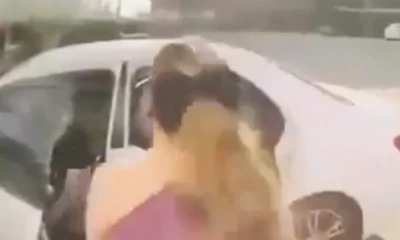
 International2 days ago
International2 days agoMexican influencer “La Nicholette” kidnapped in exclusive area of Culiacán
-

 Central America5 days ago
Central America5 days agoGuatemala prison uprisings leave 46 guards held by gangs
-

 International4 days ago
International4 days agoOver 160 christian worshippers kidnapped in Kaduna Church attacks
-

 International3 days ago
International3 days agoDaily Mail publisher insists reports relied on legitimate sources amid privacy trial
-

 International3 days ago
International3 days agoGermany says football bodies alone will decide on possible World Cup boycott
-

 International5 days ago
International5 days agoChile declares state of catastrophe as wildfires rage in Ñuble and Biobío
-

 International2 days ago
International2 days agoMajor winter storm to blanket U.S. and Canada with snow, ice and arctic cold
-

 International2 days ago
International2 days agoTrump announces preliminary NATO agreement on Greenland, suspends tariffs on Europe
-

 Central America1 day ago
Central America1 day agoMazatenango Carnival cancelled amid State of Siege in Guatemala
-

 International1 day ago
International1 day agoMarkets rise as Trump halts Europe tariffs and floats Greenland agreement framework
-

 International4 days ago
International4 days agoSpain’s Prime Minister pledges transparency after train crash kills at least 39
-

 International1 day ago
International1 day agoVenezuela’s interim president predicts 37% increase in revenues for 2026
-
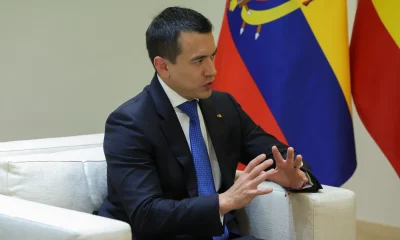
 International2 days ago
International2 days agoColombia slams Ecuador’s 30% tariff as ‘economic aggression’
-

 International1 day ago
International1 day agoTrump to invite Venezuela’s interim president Delcy Rodríguez to Washington
-

 International1 day ago
International1 day agoJapan reopens Kashiwazaki-Kariwa Plant despite public concerns
-

 International1 day ago
International1 day agoFour minors killed in deadly clash between FARC dissidents in Colombia’s Amazon
-
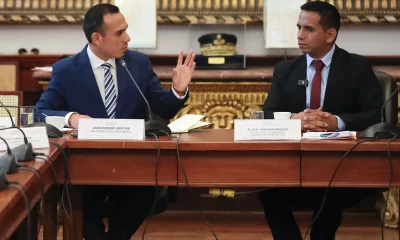
 International2 days ago
International2 days agoJosé Jerí claims destabilization attempt after videos of secretive meetings surface













